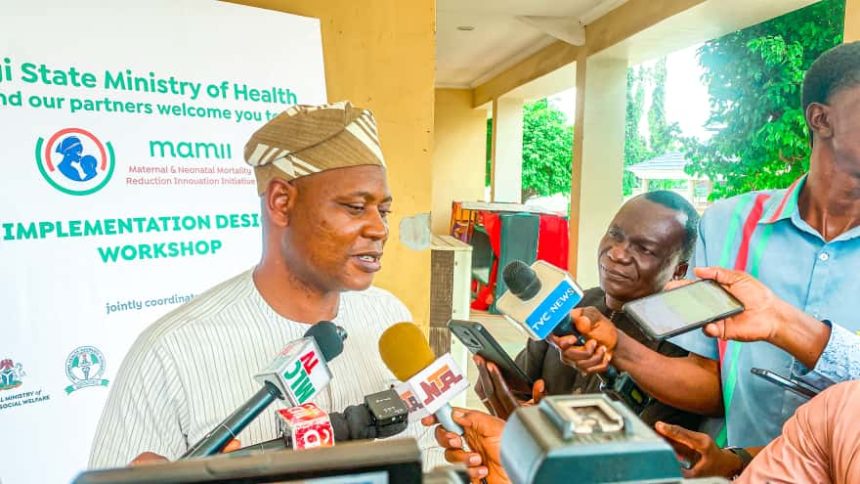By Joy Salami, Lokoja
In a determined effort to reduce maternal and neonatal mortality rate, the Kogi State Ministry of Health, in collaboration with the Federal Ministry of Health and Social Welfare, development partners, and relevant MDAs, has organised a five-day Implementation Design Workshop under the Maternal and Neonatal Mortality Reduction Innovation Initiative (MAMII).
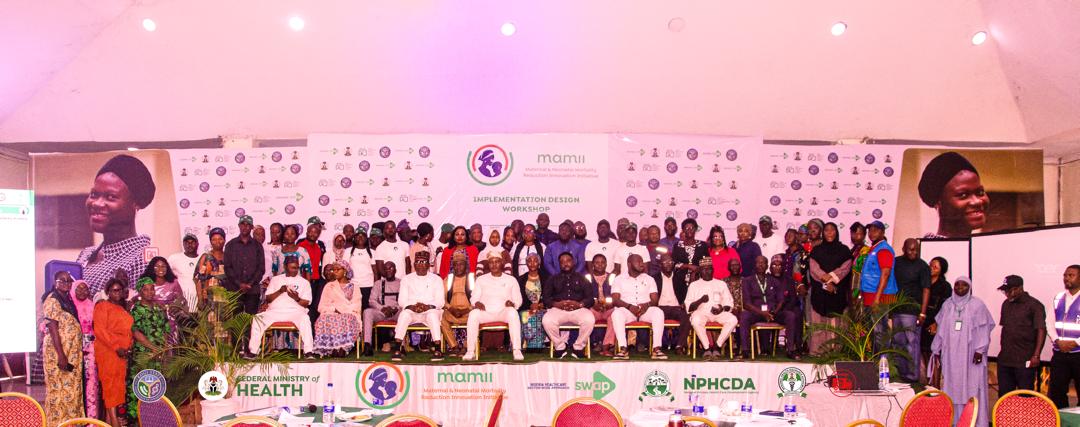
The workshop, which began on Monday, October 13th, 2025 in Lokoja, has brought together key stakeholders from the health sector, partners, and community representatives to design a clear implementation roadmap for reducing preventable maternal and newborn deaths in Kogi State.
Declaring the workshop open, the Permanent Secretary, Ministry of Health, Mr. Stephen Momoh, who represented the Commissioner for Health, Dr. Adams Abdulaziz, reaffirmed the state government’s commitment to improving maternal and child health outcomes.
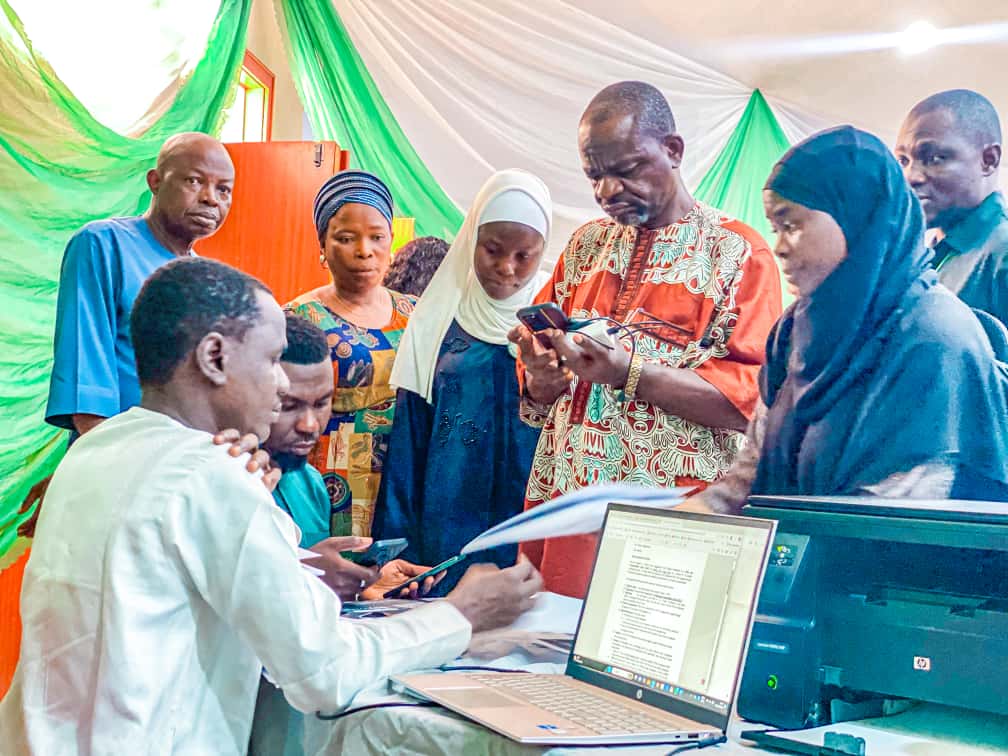
He noted that the government places a high premium on quality healthcare delivery and will continue to partner with relevant agencies to ensure safer pregnancies and healthier children across Kogi State.
Giving an overview of the MAMII strategy, Mrs. Sariet Audu, the State Coordinator Officer (SCO), explained that the initiative focuses on 172 Local Government Areas across 33 states where over 55% of maternal and neonatal deaths occur. According to her, the strategy is aimed at strengthening health systems through innovation, data-driven planning, and collaboration.
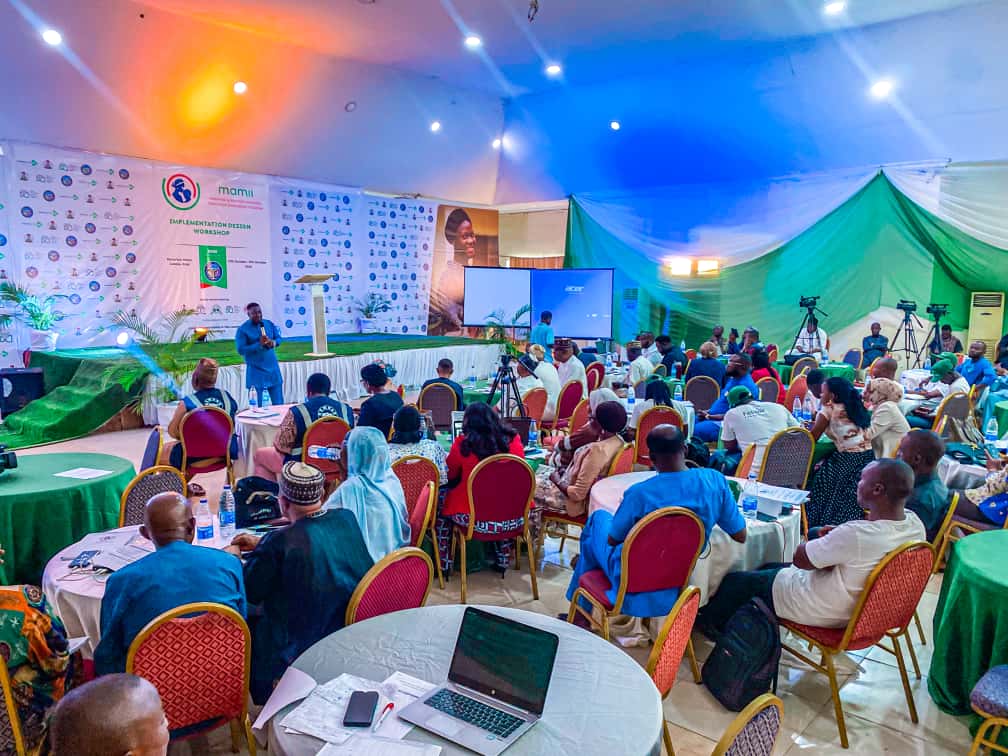
She described the workshop as a co-creation process that allows all stakeholders, from the community to the national level to design a practical, context-specific plan for Kogi State.
In her words, “Our goal is to create a realistic and sustainable plan that reflects the health needs of Kogi women and children.”
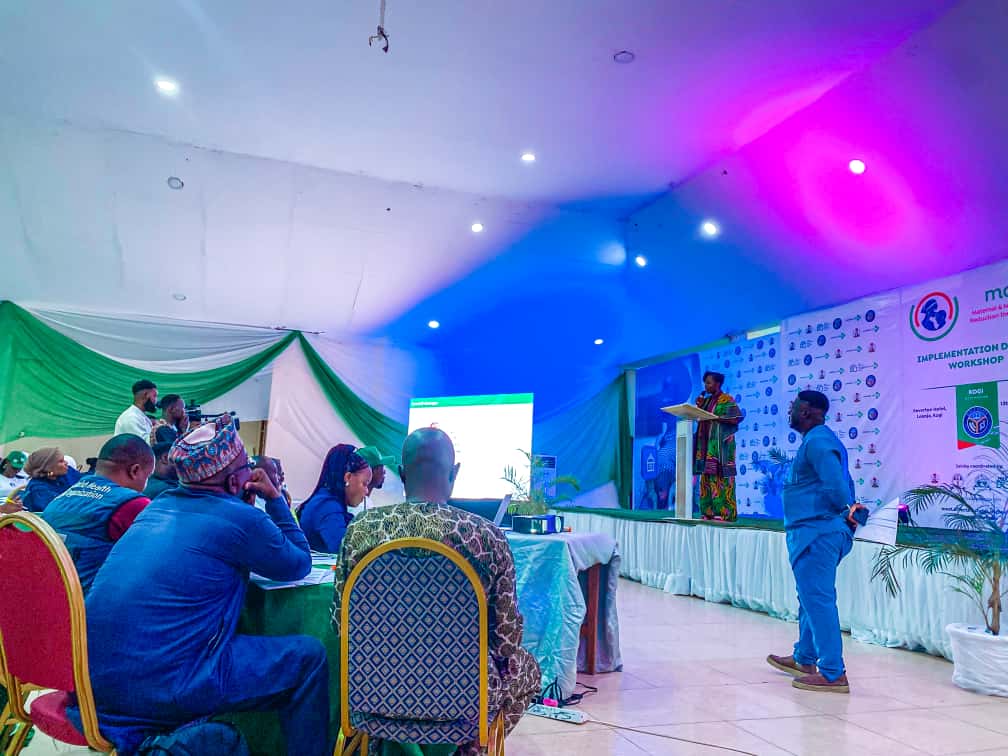
Dr. Dayo Adeyanju, Country Lead of the MAMII Programme, representing the Coordinating Minister of Health and Social Welfare, Prof. Mohammed Ali Pate, gave a detailed insight into the purpose and expected outcomes of the initiative.
He explained that the current administration under President Bola Ahmed Tinubu recognizes the high maternal and newborn mortality burden in Nigeria and has resolved to address it head-on through the MAMII initiative.
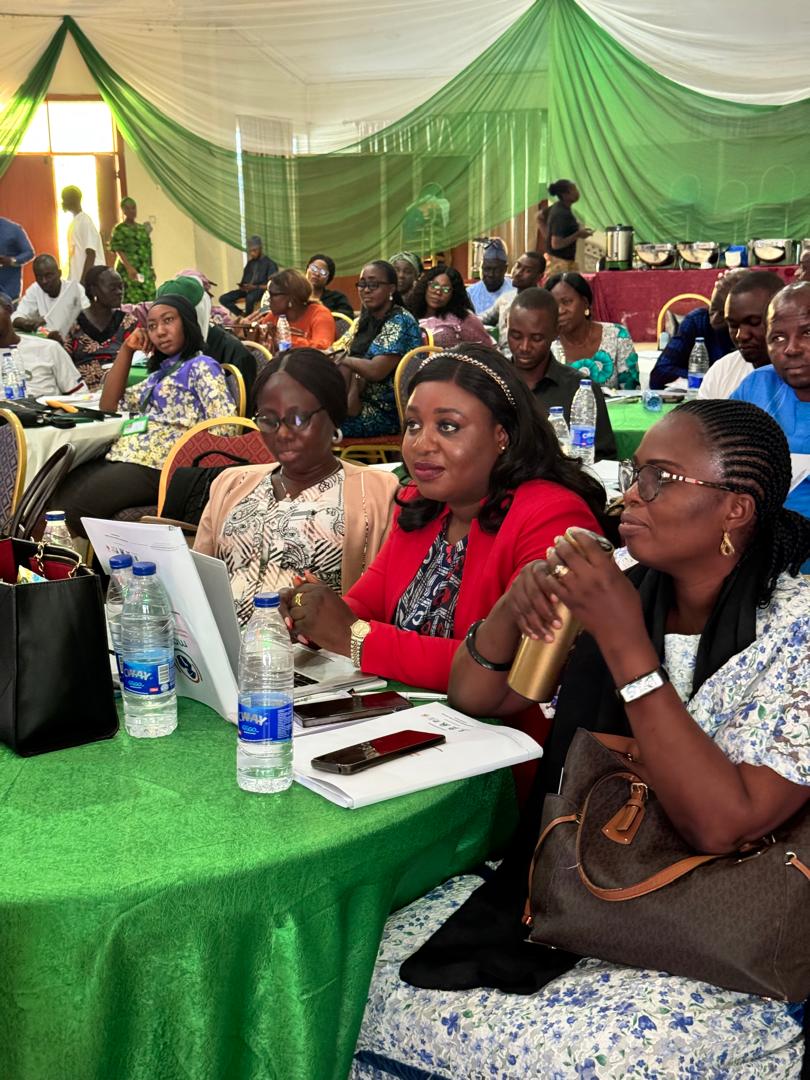
According to Dr. Adeyanju, “People often say Nigeria contributes significantly to the global maternal burden. But the real news is that the government has decided to tackle this challenge directly. The MAMII initiative adopts a sector-wide approach, bringing all stakeholders from the community, local government, state, and federal levels together to find lasting solutions.”
He noted that the workshop is designed to understand the drivers of maternal and neonatal mortality and to co-create solutions that emerge from the people themselves, emphasizing that “this is a bottom-up approach, not a top-down one.”
Dr. Adeyanju further stated that the Federal Government, through the initiative, will support states by revitalizing primary healthcare centres and providing maternal and newborn commodities. He added that there will be free maternal care, free caesarean sections powered by the National Health Insurance, and even free transportation for women in need.
He revealed that 172 LGAs have been identified nationwide as high-burden areas, one of which is Lokoja Local Government Area in Kogi State.“Though we are starting from Lokoja, the solutions we develop here will be scaled across the state to ensure every mother and child benefits,” he said.
Speaking on behalf of the state’s coordination team, Dr. Bola Kelvin Jonah, the SWAP (Sector-Wide Approach) Officer for Kogi State, explained that Lokoja LGA was selected due to its high maternal mortality rate as indicated by available data.
Dr. Jonah said the workshop goes beyond routine meetings, emphasizing that participants will go into communities to understand cultural beliefs, norms, and barriers that prevent women from accessing care.
We want to hear from the people themselves, to understand the four delays that lead to maternal deaths: the delay in seeking care, reaching care, receiving care, and the delay within the health system, he explained.
He stressed that the findings from these engagements will guide the creation of a workable plan to be implemented by the state and partners. Our approach is realistic. What works in Lagos may not work in Kogi. This co-creation process ensures our solutions fit our own context, Dr. Jonah stated.
Also speaking, Dr. Titilayo Falodun of MSI Nigeria Reproductive Choices, representing one of the key implementing partners, said the organization is committed to reducing maternal mortality by supporting the public health sector and strengthening family planning services.
According to her, “Kogi, particularly Lokoja Local Government, records one of the highest maternal morbidity and mortality rates in the country. Our intervention focuses on training family planning service providers on long-acting reversible contraceptives, providing equipment to health facilities, and ensuring quality data collection for effective planning.
Dr. Falodun added that MSI Nigeria currently supports 200 health facilities in Kogi and plans to scale up to 300 in the coming months, all aimed at preventing unintended pregnancies and reducing unsafe abortions, key contributors to maternal deaths.
The workshop, jointly coordinated by the Federal Ministry of Health and Social Welfare, Nigeria Health Sector Renewal Investment Initiative (NHSRII), and partners including MSI Nigeria Reproductive Choices, continues through October 17th, 2025.
By the end of the five-day engagement, participants are expected to produce a co-created implementation plan that will guide MAMII’s rollout in Kogi State, one that reflects shared ownership, sustainability, and accountability at every level.


